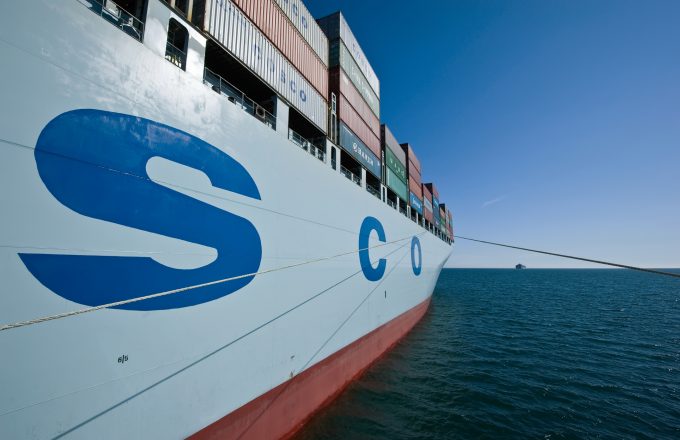Liner industry frustration as India demands millions in taxes
Foreign-flagged container shipping lines facing the heat from Indian tax authorities have been lobbying the ...
GM: RAISING THE ROOF GGM: IN FULL THROTTLE GZIM: MAERSK BOOST KNIN: READ-ACROSSMAERSK: NOT ENOUGHMAERSK: GUIDANCE UPGRADEZIM: ROLLERCOASTERCAT: HEAVY DUTYMAERSK: CATCHING UP PG: DESTOCKING PATTERNSPG: HEALTH CHECKWTC: THE FALLGXO: DEFENSIVE FWRD: RALLYING ON TAKEOVER TALKODFL: STEADY YIELDVW: NEW MODEL NEEDEDWTC: TAKING PROFIT
GM: RAISING THE ROOF GGM: IN FULL THROTTLE GZIM: MAERSK BOOST KNIN: READ-ACROSSMAERSK: NOT ENOUGHMAERSK: GUIDANCE UPGRADEZIM: ROLLERCOASTERCAT: HEAVY DUTYMAERSK: CATCHING UP PG: DESTOCKING PATTERNSPG: HEALTH CHECKWTC: THE FALLGXO: DEFENSIVE FWRD: RALLYING ON TAKEOVER TALKODFL: STEADY YIELDVW: NEW MODEL NEEDEDWTC: TAKING PROFIT

This is a really interesting blog from Splash 24/7, examining the challenges in Maersk’s stated ambition to become an integrated logistics provider. Pointing out that the group essentially has conflicts of interests in so doing (to offer the lowest cost possible, does it squeeze margins on its terminal arm or the shipping line?), the author, Quintiq’s Kris Kosmala, argues a different outcome is more likely. He suggests that Cosco is in fact better placed to become the first shipping line to offer door-to-door integrated services – although it faces the same problem. The winner will be the one with the best size and reach. As he notes: “If Cosco is the avatar of the Chinese government investment strategy into dominating global logistics links, then Cosco will be in a much more flexible position to move quickly on promising [acquisition] targets.” Worth a read.
Comment on this article
gunther ginckels
March 09, 2018 at 3:32 pmThe analysis is correct. The take-over of Sealand in 1999 doubled the number of terminals being part of the “Line” not handling competition showing an average asset utilisation of less than 40% and no view on the financial performance of each individual terminal. APM Terminals as an independent was born. The history of DAMCO (MCCC, Maersk Logistics etc…) is different where the “Line” people always considered this a “Forwarders” activity with little affection. Placing these activities in the market was at the time a necessary move resulting however in a widening gap between internal expectations and deliverables. Handing over “Land Based Activities” to APM Terminals was than a mistake as they had no clue what to do with it and started – under pressure of bottom line targets – selling-out inland terminals, railway companies and haulage units. Consolidating these 3 business units is now the next necessary move and long due. It will cost but they do have the cash in the draws ready to be used. Key to this is the ICT platform where Maersk is partnering with Microsoft and IBM. That is a very strong alliance. Sure COSCO has the potential to be a key important top-3 player. However unless they have a structure and business model offering visibility into the economics of the respective logistic elements in the chain, they could be in for some unpleasant surprises. True, the OBOR project is an important and brilliant move. The real problem is that “all things being equal” is not applicable to this thesis. COSCO is not obliged to play according to the “Free Trade” economic rules – Xi Jinping will write a cheque and ensures that all things will not be equal.